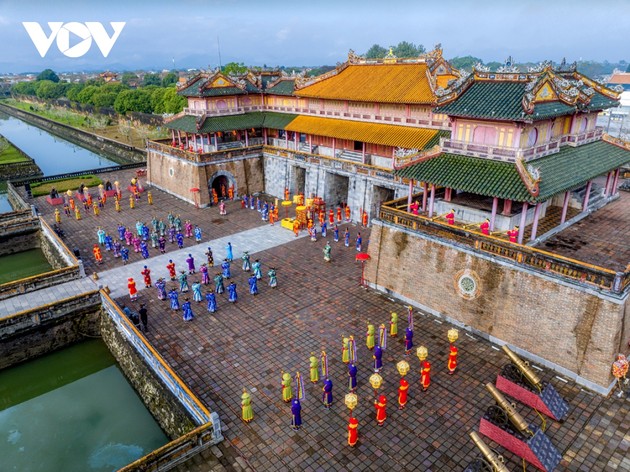
Reenactment of the Ban Soc ceremony at the beginning of 2024 showcases the cultural values and heritage of Vietnam. (Photo: Hoang Hai/VOV)
|
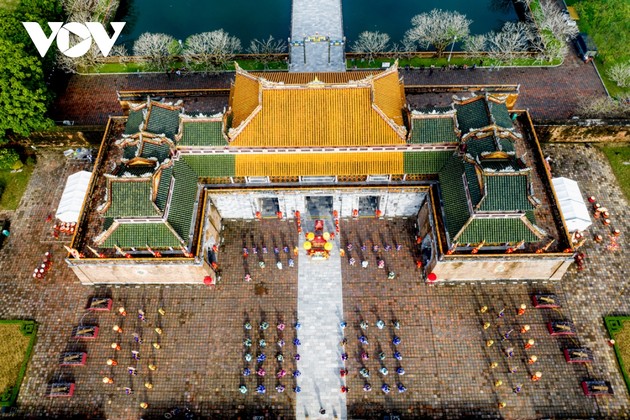
The event coincides with the announcement of Hue Festival 2024. Hoang Viet Trung, Director of the Hue Monuments Conservation Centre said, Hue Festival 2024 encompasses a series of festivities to be held throughout the year. (Photo: Hoang Hai/VOV)
|
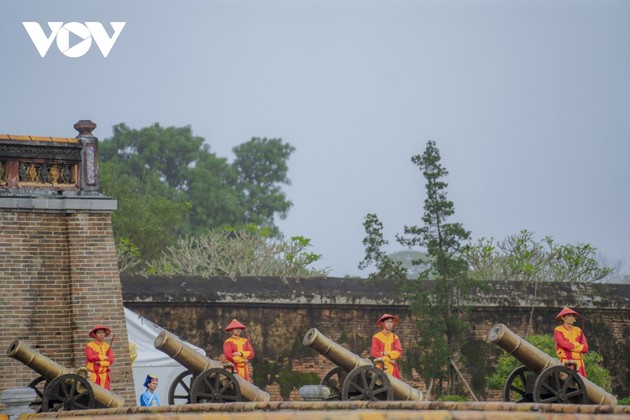
“Hue Festival 2024, with a four-season concept, will feature a variety of formats, including folk festivals, royal court festivals, religious festivals, traditional festivals, and in time, step by step will build new formats to meet visitor’s interests. It will eventually become an annual tourism exhibition and contribute to the socio-economic development of the region. It will help Thua Thien-Hue province become a unique festival city in Vietnam”, Mr. Trung added. (Photo: Hoang Hai/VOV)
|
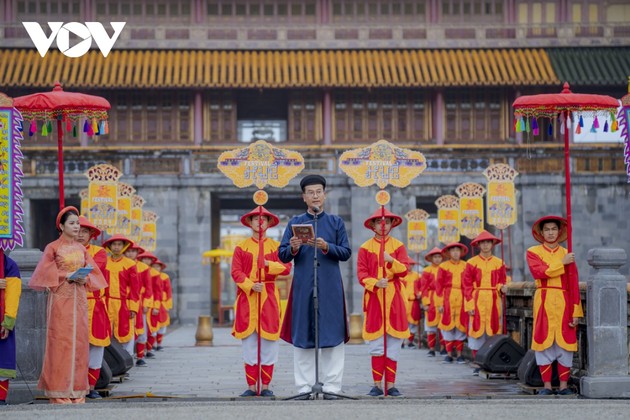
Ban Soc was a traditional ceremony of the Nguyen Dynasty, held annually at the end of the lunar calendar. Every year, after the Royal Institute of Astrology completed the upcoming calendar, the court would organize the Ban Soc ceremony. The Royal Institute of Astrology, established under King Gia Long, was responsible for studying astronomy, weather forecasting, calendar making, and announcing the time to determine the best seasons for farming. (Photo: Hoang Hai/VOV)
|
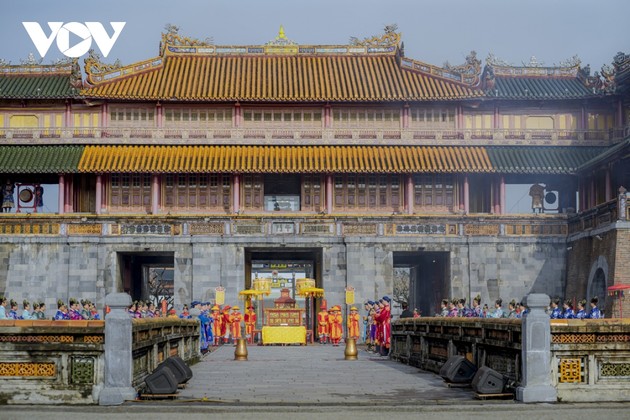
With a four-season concept, the Hue Festival 2024 will feature four pivotal festivals. These are the Spring Festival “Ancient Capital Spring” from January to March; the Summer Festival “Imperial City Shines” from April to June; the Autumn Festival “Hue in Autumn” from July to September; and the Winter Festival “Winter in Hue” from October to December. Hundreds of other activities will supplement the four-season festivals. (Photo: Hoang Hai/VOV)
|
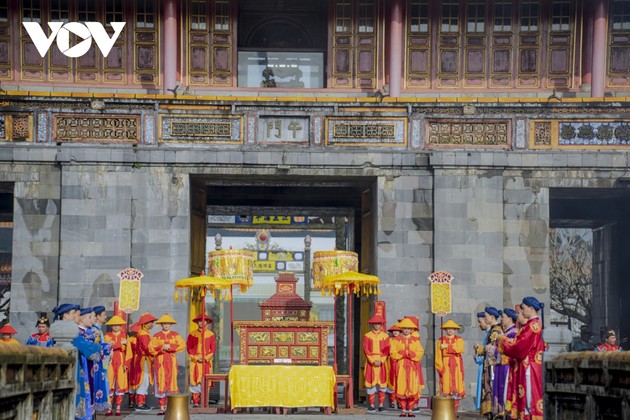
In ancient Vietnam, where agriculture played a vital role in the economy, calendars were an important tool in people’s lives. (Photo: Hoang Hai/VOV)
|
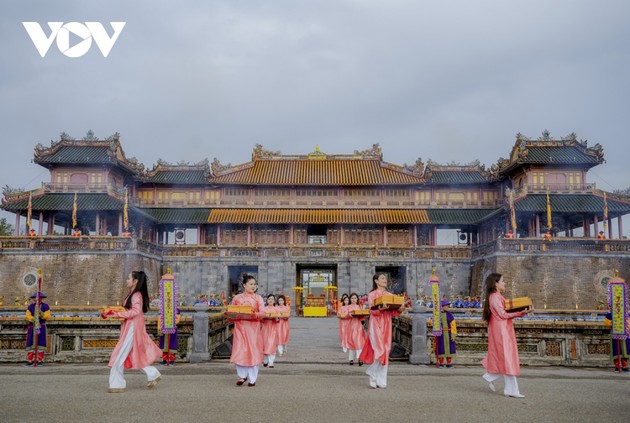
Calendars were offered to imperial members at the Royal Court, and later distributed to officials in the Imperial City for public use. (Photo: Hoang Hai/VOV)
|
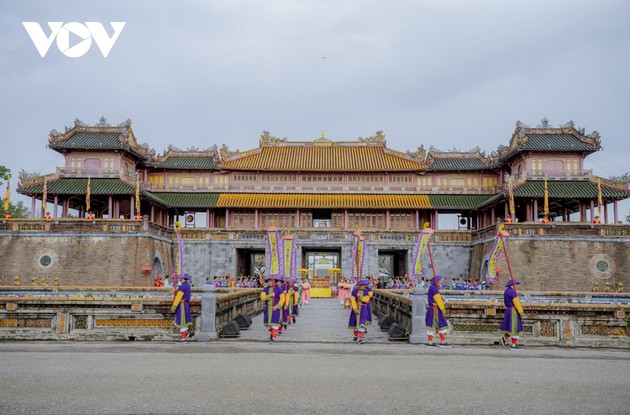
Compiling and printing calendars was no easy task in the past, according to Dr. Phan Thanh Hai, Director of the Department of Culture and Sports of Thua Thien-Hue Province. The Royal Institute of Astrology was responsible for researching and compiling the dates. A draft had to be submitted for review before being presented to the King for approval. (Photo: Hoang Hai/VOV)
|